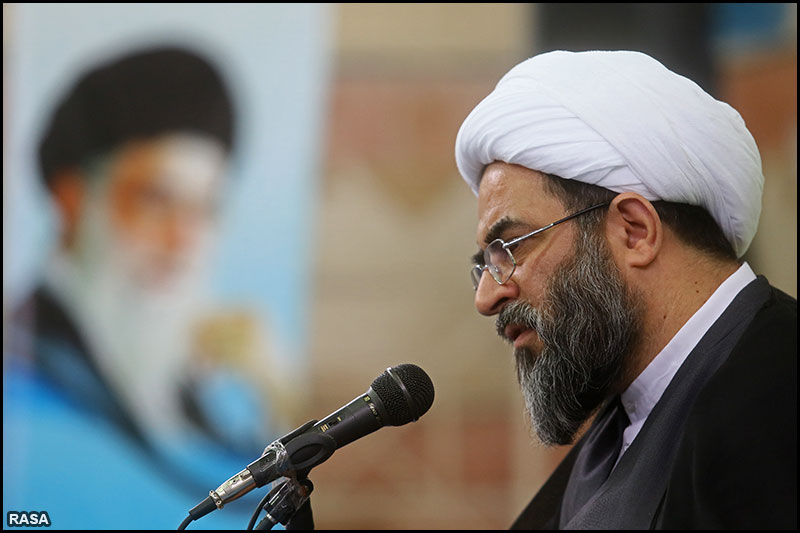
RNA – Ayatollah Mohammad-Javad Fazel-Lankarani, the director of the Jurisprudence Centre of the Pure Imams (A), in his meeting with a group of Kuwaiti women cultural activists at the Holy Shrine of Lady Fatimah al-Ma’sumah (S) in Qom referred to the influence of women in social and community issues, saying that a devout Muslim woman in today’s society must be committed to the religion and religious teachings before anything else.
The status of women in Islam and in the school of the Ahlul-Bayt (A) is that they are important and of great value, and said that the issues relating to women in Islam shows their significance in the fields of personal, social and political jurisprudence.
Ayatollah Fazel-Lankarani stressed on the importance of research on women’s issues in Islam and stated that: “Today, the West seeks the collapse of women’s identities in society through spreading false propaganda. This perspective is due to corruption and Western scholars have confirmed this.”
The renowned member of the Society of Seminary Teachers of Qom stressed that the West's women’s liberation slogans are damaging the status of women, saying that although these slogans may be outwardly correct, inwardly they are wrong and damaging to women.
His Eminence stated that women must participate in all fields to fulfill their legal and religious obligations. “Due to the blessings of Imam Khomeini (RA) and the Islamic Revolution, women enjoy an important place in the country and in various fields, including in political and social issues, where they have a voice,” he said.
Ayatollah Fazel-Lankarani criticized the idea that women should be at home and do not have a role in external and social issues. He explained that in Islam there is no distinction between women and men and how many women there are in any field. “In some fields, women are more advanced than men,” he added.
The director of the Jurisprudence Centre of the Pure Imams (A) explained that women played a key role in the wars in early Muslim history and said: “Today in Yemen, we see women enthusiastically encouraging their men and children to resist the enemies.”
The renowned scholar said that Islamic history is full of women participating in various fields, including in social and military roles. He added that Lady Fatimah al-Zahra (S) was also involved in some battles and in efforts to support the troops.
Ayatollah Fazel-Lankarani pointed out that some legal rulings in Islam which are related to women’s issues were specifically for the past. He added that in the cases where Islam forbids women from participating in, from such issues as judgeship, are due to a higher purpose, such as that they prevent women from suffering mental harm. Islam respects the privacy of women, thus for this reason, it is not their duty to become judges.
He pointed out the duties of men toward women and said Islam protects women and for this reason, Islam states that women cannot leave the house without her husband’s or guardian’s permission. “This is justified because of the many dangers lurking outside the home for women,” he said.
Ayatollah Fazel-Lankarani said Islamic law is credible and is not based on inherently false virtues and thus, these rulings do not prove the superiority of men over women.
The director of the Jurisprudence Centre of the Pure Imams (A) also emphasized the need to deal with cultural attacks by enemies who seek to destroy the foundations of the family through various means, including through satellite channels and social networks. “Thus, we have a great and serious responsibility and must protect the family in Islamic countries,” he said.
In response to a question about the insulting Wahhabi-issued fatwas in regard to women and their position, His Eminence stated that these improper opinions and fatwas against women are rooted in the lack of a correct understanding of Islam and its teachings. “Unfortunately, some of these erroneous fatwas have been expropriated in Western discourses about women,” he said.
111/112